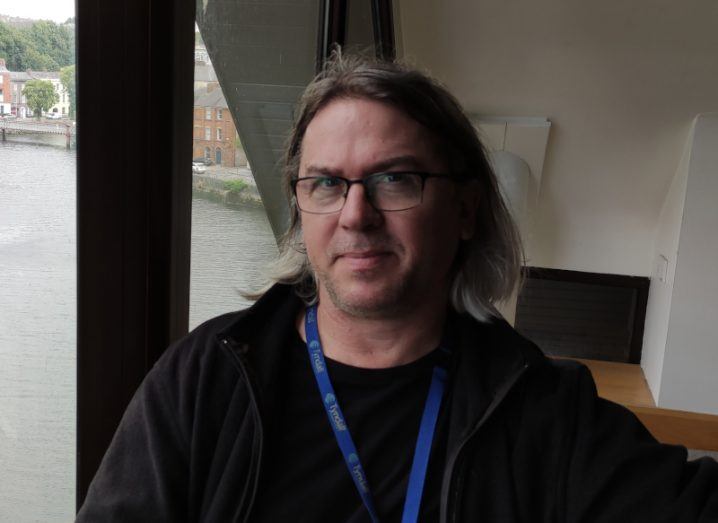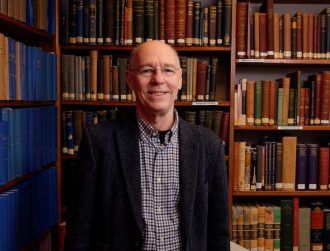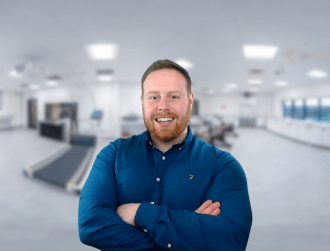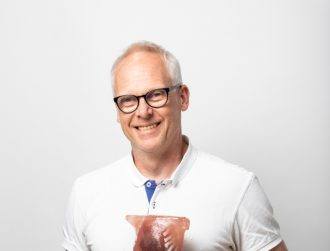
Image: Dr Ray Duffy
Dr Ray Duffy describes the potential impact of discoveries in nanoelectronics as ‘truly global’.
As far as Dr Ray Duffy is concerned, the real heroes of science are the teachers who inspire their pupils to take an interest in STEM subjects. He sees that early experience as laying “the foundations for people to get excited by science and technology”.
“That is often the starting point from which people go into the field of research.
“I would say … we owe a debt to the teachers who get students engaged in [STEM].”
Duffy is a principal researcher at the Tyndall National Institute and a fellow in the School of Engineering at University College Cork.
His research concerns emerging materials and devices for future nanoelectronic, ICT, sensing and quantum applications. In the past five years, he has been the principal investigator or named collaborator on various projects funded by Science Foundation Ireland (SFI), Enterprise Ireland and EU Horizon 2020.
Just last month, Duffy and his University of Galway collaborator, Prof Ger O’Connor, announced a new project funded by SFI Frontiers of the Future. The project will research advanced and smart manufacturing to increase scalability, functionality and energy efficiency of electronic devices.
Tell us about your current research.
I’m working in the field of advanced nanoelectronic devices, such as the silicon transistor, which is the basic building block of many electronic circuits and systems.
The transistor is essentially the ‘0’ or ‘1’ bit, depending on whether electronic current can flow through it. Transistors are seen in a vast variety of application areas spanning consumer electronics, healthcare, security, sensing and the Internet of Things, to name a few.
More specifically, I’m exploring new ways of fabricating, designing and understanding transistors and other electronic devices, such as quantum electron devices. Day to day, my aim is to explore new fabrication processes, or novel semiconductor materials entirely, other than silicon.
Currently, we have a project based on two-dimensional, thin-film electronic materials that could possibly replace silicon or augment the performance of electronic components. The project is a mix of engineering, chemistry, materials science, physics and theory, which makes it exciting and challenging in equal measure.
In your opinion, why is your research important?
Electronic devices and products are everywhere. For example, in a typical smartphone, the microprocessor has billions of transistors, and there are billions of smartphones in use worldwide.
So, imagine if you could discover something that makes better transistors, in terms of performance, energy efficiency or functionality, the reach and impact of that would be truly global.
I remember when mobile phones were just phones and nothing more, then they added a camera, which was a breakthrough, and later phones became mini, portable computers, which was amazing, so who knows what is coming next.
What inspired you to become a researcher?
In school, I always enjoyed learning and discovering new things, which is a key part of wanting to be a researcher.
If you find new knowledge and you are the first in the world to see that, then that is definitely a thrill. Moreover, I want to work on a research subject with an application or goal in mind that could possibly influence the way we live.
What are some of the biggest challenges or misconceptions you face as a researcher in your field?
Every role has its challenges – it depends on what stage you are at in your career, whether you’re doing an undergraduate final-year project or you’re a professor running a large research team.
In my case, I would say one big challenge nowadays is attracting talented people to do a PhD. It is difficult to convince people in their early 20s to embark on another four-year degree and to stay living the student life, when they have just finished four or five years of study.
10 things you need to know direct to your inbox every weekday. Sign up for the Daily Brief, Silicon Republic’s digest of essential sci-tech news.





